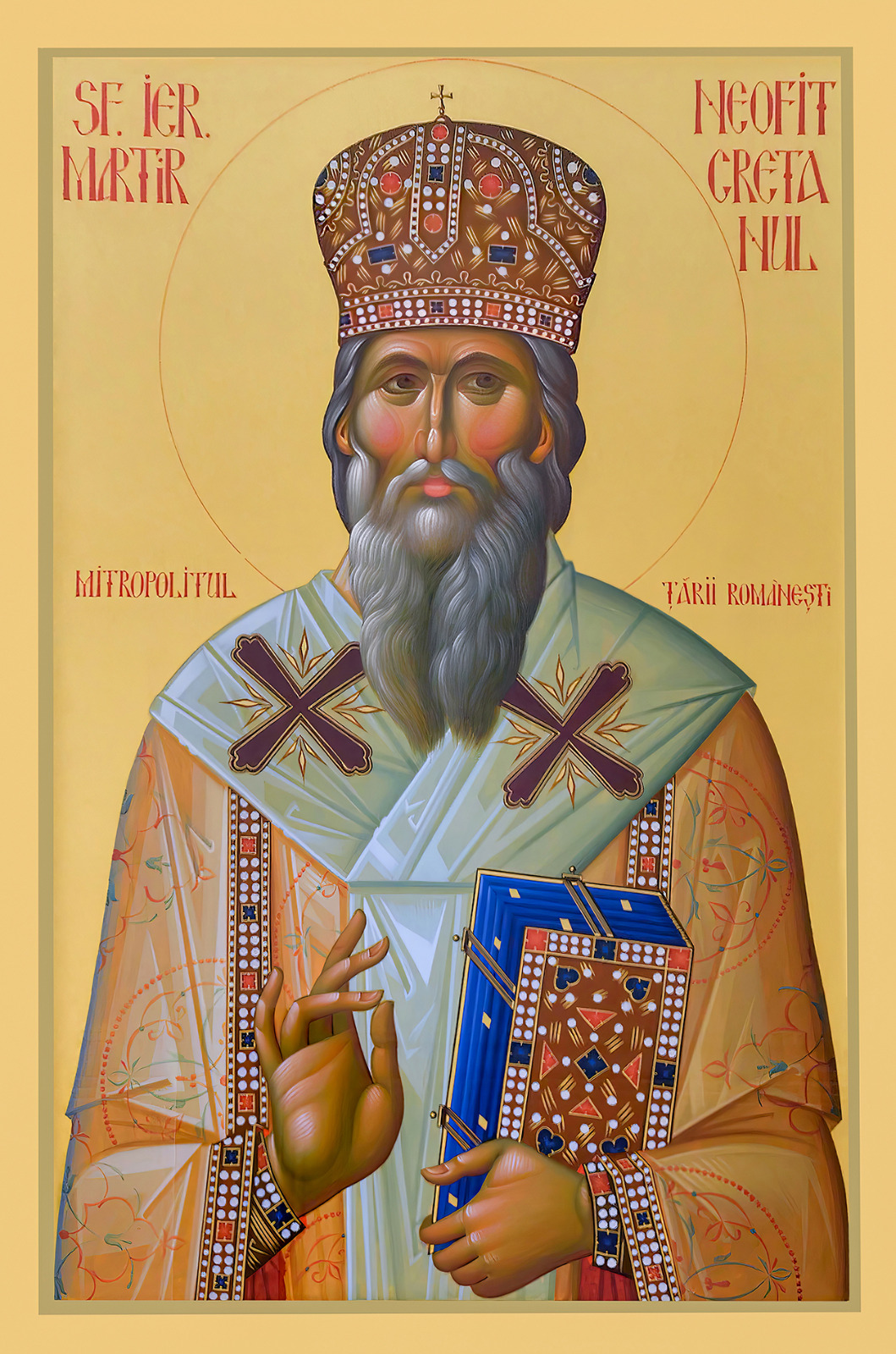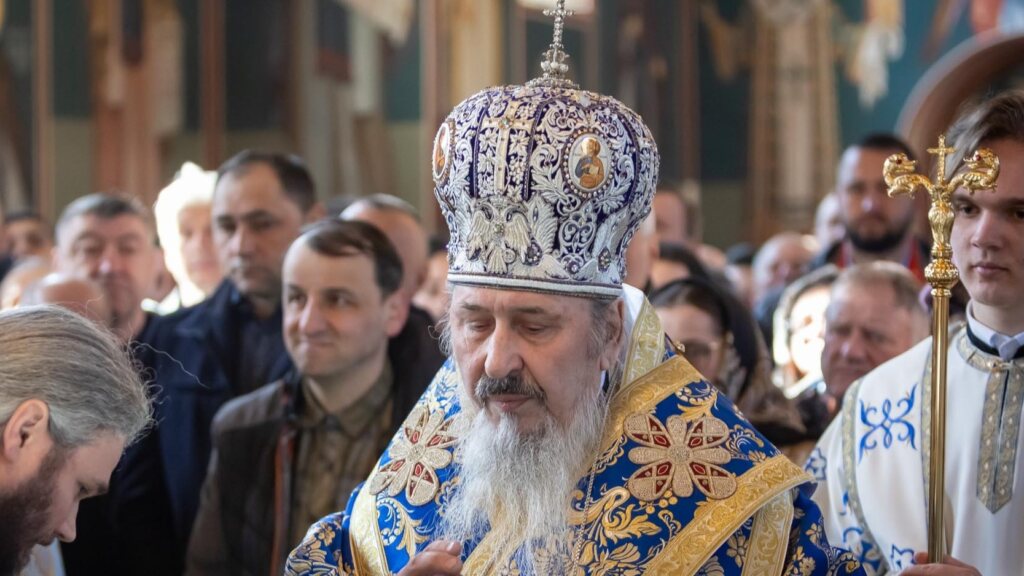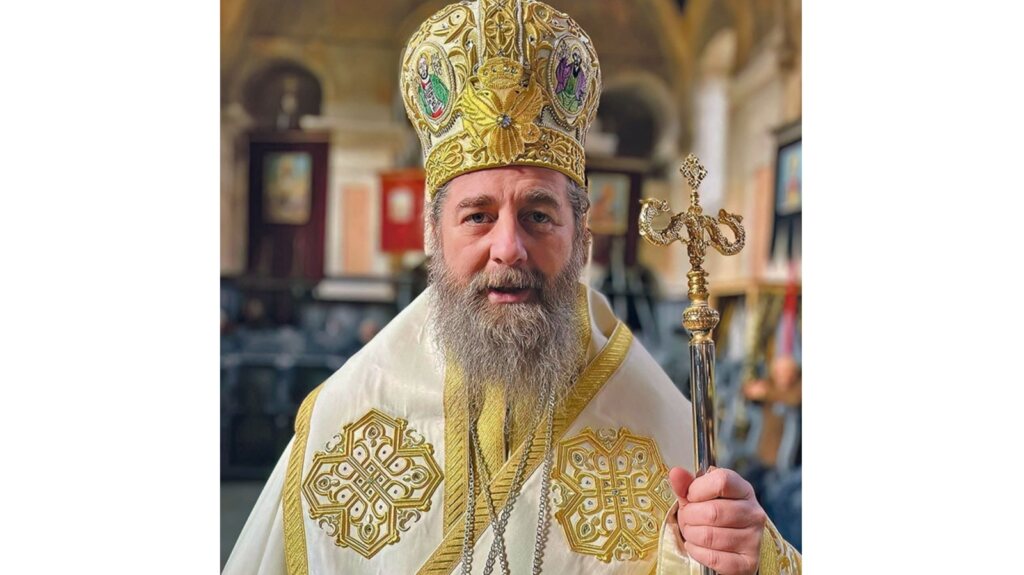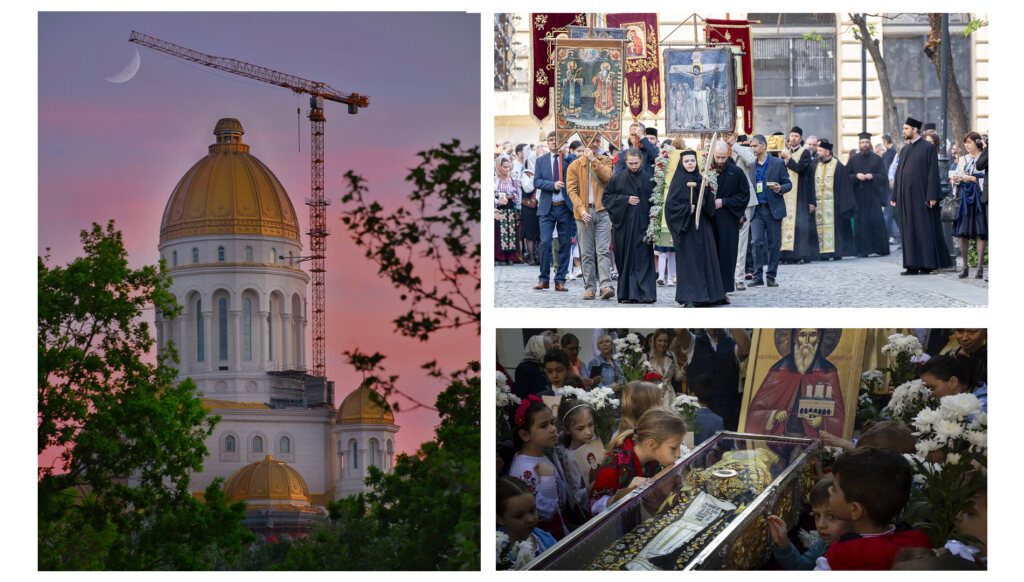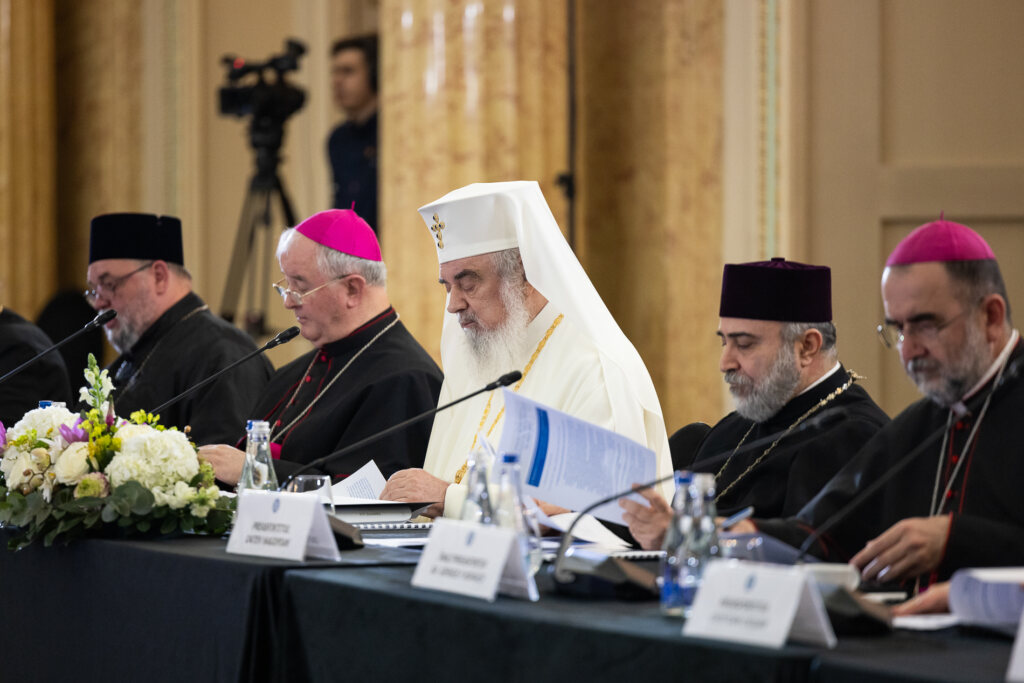St. Tikhon the Bishop of Amathus
Saint Tikhon, Bishop of Amathus, was born in the city Amathus on the island of Cyprus. His parents raised their son in Christian piety, and taught him the reading of sacred books. It is said that the gift of wonderworking appeared in Saint Tikhon at quite a young age.
His father was the owner of a bakery, and whenever he left his son alone in the shop, the holy youth would give free bread to those in need. Learning of this, his father became angry, but the son said that he had read in the Scriptures, that in giving to God one receives back a hundredfold. “I,” said the youth, “gave to God the bread which was taken,” and he persuaded his father to go to the place where the grain was stored. With astonishment the father saw that the granary, which formerly was empty, was now filled to overflowing with wheat. From that time the father did not hinder his son from distributing bread to the poor.
A certain gardener brought the dried prunings of vines from the vineyard. Saint Tikhon gathered them, planted them in his garden and besought the Lord that these branches might take root and yield fruit for the health of people. The Lord did so through the faith of the holy youth. The branches took root, and their fruit had a particular and very pleasant taste. It was used during the lifetime of the saint and after his death for making wine for the Mystery of the Holy Eucharist.
They accepted the pious youth into the church clergy, made him a reader. Later, Mnemonios, the Bishop of Amathus ordained him a deacon. After the death of Bishop Mnemonios, Saint Tikhon by universal agreement was chosen as Bishop of Amathus. Saint Epiphanius, Bishop of Cyprus (May 12), presided at the service.
Saint Tikhon labored zealously to eradicate the remnants of paganism on Cyprus; he destroyed a pagan temple and spread the Christian Faith. The holy bishop was generous, his doors were open to all, and he listened to and lovingly fulfilled the request of each person who came to him. Fearing neither threats nor tortures, he firmly and fearlessly confessed his faith before pagans.
In the service to Saint Tikhon it is stated that he foresaw the time of his death, which occurred in the year 425.
Troparion — Tone 3
God called you to the sacred priesthood / as a worthy servant of the Holy Trinity. / You shone forth with the grace of godliness / strengthening the Church by many miracles. / Righteous Tikhon, entreat Christ our God to grant us His great mercy.
Hieromartyr Neophyte of Crete, Metropolitan of Wallachia
Saint Neophyte was born on the island of Crete around 1690. From his early youth, he turned to monastic life, in which he grew spiritually. At the same time, he learned theology and the sciences of his time and became a hieromonk.
He was called to Wallachia by Prince Constantine Mavrocordat (in his third reign: 1735-1741) to be the teacher of his children.
In January 1737 he was ordained honorary metropolitan of Myra in Lycia and, after a year, “with the advice of all the honourable boyars and all the ecclesiastical clergy”, he was elected Metropolitan of Wallachia.
Although he was of a different nation and language than the faithful he led, Metropolitan Neophytos worked tirelessly for the spiritual and material prosperity of the Romanian people, following the example of his predecessor, Hieromartyr Anthimus the Georgian, metropolitan of Wallachia (+1716).
Thus, the hierarch Neophyte supported the full introduction of the Romanian language in worship, by re-establishing the printing press of the Metropolitanate in Bucharest, where he published 14 books of mass, in several editions, and other books of teaching, most of them in the language of the people.
Wishing to support Orthodox Christians under Ottoman rule, the Metropolitan assisted Patriarch Sylvester of Antioch in printing an Arabic Psalter in Bucharest in 1747.
He supported the Hesychastic revival initiated by St. Basil of Poiana Mărului, whom he called to present his teaching to Patriarchs Matthew of Alexandria, Sylvester of Antioch and Parthenius of Jerusalem, then in Bucharest, hierarchs who testified to the orthodoxy of the teaching preached and lived by St. Basil.
Hierarch Neophyte supported education, being named, by Prince Grigorie Ghica, “teacher’s overseer”, because the Church financially supported all the schools that functioned in his time: in Bucharest, Râmnicu Vâlcea, Buzău, Târgoviște, Craiova, Câmpulung and Slatina.
The Metropolitan himself founded a Romanian school at the Buliga Hermitage in Pitesti (Argeș county) and a school with Romanian, Greek and Slavonic teaching at the Pătroaia Hermitage (Dâmbovița county), with free education for peasant children.
He also took care of the Romanian Orthodox in Transylvania, who lacked an Orthodox hierarch, ordaining several priests for the Transylvanian faithful, among whom was St Moses the Confessor, the priest of Sibiel (celebrated on 21 October).
For his work, the Patriarchate of Constantinople conferred on him the title of lieutenant of the throne of Caesarea Cappadocia, which from 1776 became a permanent title of the metropolitans of the Romanian Country.
Metropolitan Neofit Cretan was the main advocate of the abolition of serfdom, whereby peasants were dependent on the landlords on whose estates they lived. Saint Neophytos was the first to liberate all the peasants from the estates of the metropolis.
His pastoral zeal was also shown by his support for the demands of the people, oppressed by the Phanariot prince Matei Ghica (1752-1753). According to the chroniclers, the Metropolitan took the lead of the people and went to the Sultan’s envoy, to whom they complained about all the misdeeds of the ruler.
Angered by the Metropolitan’s behaviour, Prince Matei Ghica secretly ordered him to be poisoned, so that shortly afterwards, on June 16, 1753, Metropolitan Neophyite passed to the Lord as a martyred hierarch after almost 15 years as a shepherd of his faithful. He was buried near the Metropolitan Cathedral in Bucharest.
On October 28, 2022, the Holy Synod of the Romanian Orthodox Church, taking into consideration the virtuous life and tireless activity of the great Hierarch, as well as his martyrdom, decided to declare him a Saint and to celebrate his feast day on June 16, the day of his passing to eternal life.
Translated into English by oca.org

